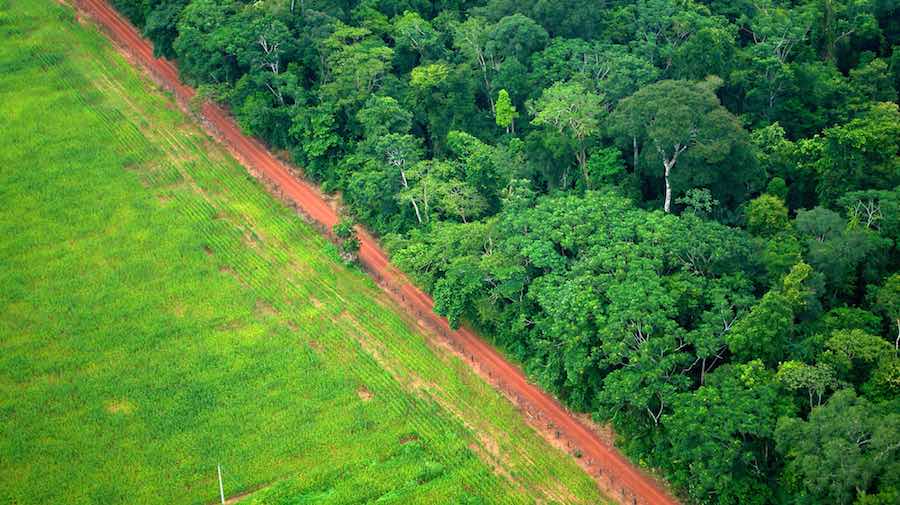From utopia to reality: the Latin American opportunity in the G20

Signatory organizations: Transforma, Instituto Talanoa, WWF, Argentina 1.5°C, POLEN Just Transitions, La Ruta del Clima, Chile Sustentable, Grupo de Financiamiento Climático para Latinoamérica y el Caribe (GFLAC), International Energy Initiative (IEI Brazil), Fundación Avina, Natural Resource Governance Institute (NRGI), The Nature Conservancy Colombia, Observatório do Clima (OC), Associação Alternativa Terrazul, Instituto de Estudos Socieconômicos (INESC), Instituto de Pesquisa e Formação Indígena (Iepé), Revolusolar, Global Methane Hub, Libélula, Uma Gota No Oceano, Instituto Brasileiro de Defesa do Consumidor (Idec), Iniciativa Climática de México (ICM).
President Lula,
A little more than 200 years ago, a revolutionary movement was born with a spirit of independence and integration, which would change the course of our region, giving way to our modern nations, today not exempt from development challenges. But Latin American integration is still a utopia. Today, you have a crucial opportunity, as captain of the G20, to free us from the fossil fuel industry and promote Latin American camaraderie.
You can - and should - leading a coalition of developing countries under the G20. We applaud the welcome of the African Union as a permanent member of the G20, as well as the invitations to the heads of government of Uruguay and Paraguay to participate in the Summit in 2024 and to the 20 Vulnerable Countries (V20), in one of its working groups. It is encouraging to see more representation from developing countries in this multilateral space of global relevance.
This ‘partnership’.’ with other heads of government in the region could follow with Mexico and Argentina, which are also part of the G20, and become a coordinated regional presence. There is more that unites us than separates us. This political moment could be used to explore common ground, synergies and economic, political and climatic complementarities, which would allow for the construction of a legacy regional agenda that resonates loudly and strongly with the interests of the most developed and powerful countries in the world.
Civil Society Organizations imagine a G20 that declares to the world its political will to promote a just energy transition that frees us from extractivist economies; a G20 that bets on Latin America as a region with the potential to implement early actions and become an international reference with environmental and social justice at the center of this transition; and a G20 that values the biodiversity and richness of our ecosystems. We, from Latin America and the Caribbean, can help you in this titanic task.
President Lula, we urge you, under your leadership, to achieve the following commitments:
First, that the G20 provide a real and effective solution to the immeasurable levels of debt and the remarkable disparities that prevent developing countries from achieving a fair and sufficient response to the climate crisis and avoid a new wave of external indebtedness of the Global South.. It is essential to transform the objectives and operation of financial institutions to internalize climate change and manage debt, designing and applying instruments such as debt swaps, and the suspension or cancellation of debt for the most vulnerable countries; and, developing an alliance between Multilateral and National Development Banks to reduce their risk aversion when investing in developing regions.
Second, that G20 countries take the lead in phasing out oil, gas and coal, particularly to reduce CO2 and methane emissions, reducing the production of fossil fuels by about one percent. 40% by 2030. Undoubtedly, this is the goal with the greatest potential for transformation to prevent the number of environmental catastrophes from continuing to increase and to prevent the climate displacement of millions of people. This phase-out must take into account the promotion of alternative livelihoods. This is the only way that other efforts to overcome this climate crisis will have a real effect.
Third, that the G20 implement its commitment to the recent to triple global renewable energy capacity, particularly by supporting the deployment of wind, solar, modern bioenergy and green hydrogen generation in developing regions. If, under its leadership in 2024, the G20 commits to invest substantially in the potential of Latin America and the Caribbean, Africa and Asia to be 100% renewable by 2040, this would translate into concrete momentum towards achieving the global target of at least 100% renewable by 2030. 70% of electricity generation is from renewables.
Fourth, that the G20 collaborate with Latin America and the Caribbean to promote safeguards environmental and social in the framework of a just energy transition, both in mining and in the generation of renewable energy. The extraction, production and final disposal of the critical minerals needed for these purposes must guarantee the highest social and environmental standards, avoiding at all costs human rights violations, damage to ecosystems, corruption and displacement of people.
Fifth, that the G20 support to the Amazonian countries of Latin America to achieve zero deforestation, combat illegal gold mining and conserve 80% of the Amazon by 2030, avoiding the point of no return of this biome. Key to this is the support for the implementation of the Belém Declaration including concrete measures to combat environmental illegalities and crimes and promote the welfare of local communities and indigenous peoples.
Sixth, that the G20 give continuity to the agenda of adaptation to the climate crisis initiated under the Argentine Presidency. It is essential to make visible the adaptation needs and priorities for the region and to close the implementation gaps, in particular, financing. There must be explicit political support and technical work for the implementation of the Global Adaptation Goal framework to be launched at COP28.
President Lula, it is in your hands to awaken the power that the G20 can have to be at the forefront of the most acute challenge to the survival of humanity as we know it; and to unite and position the region at this moment of great need for global collective action. Latin American civil society is at your disposal to support you.
← Previous
Next →
Stay up to date
Receive a summary of relevant news about companies and sustainability. All the months. Free!


